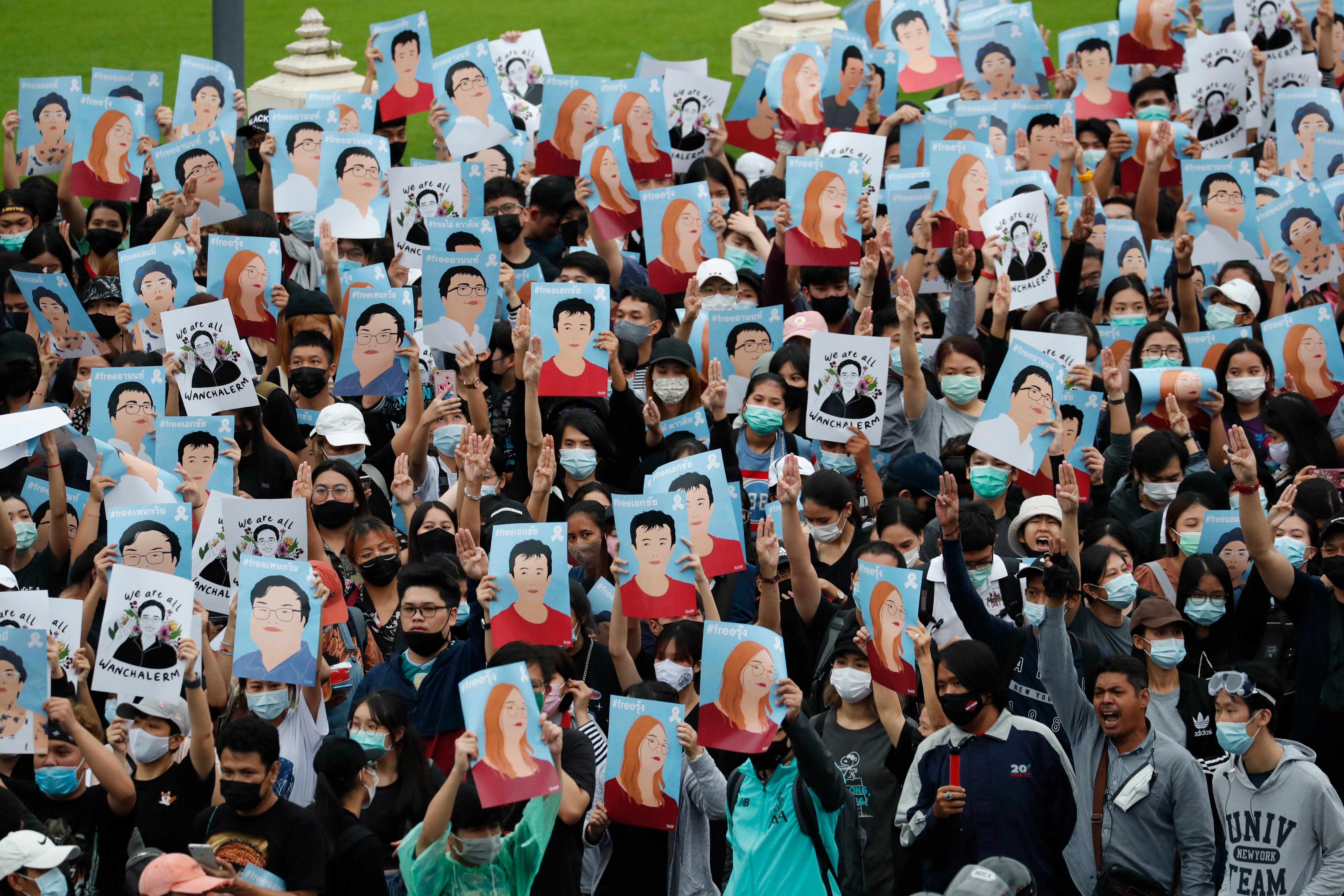Thai protesters carry on demonstrations despite warnings
Pro-democracy activists in Thailand have launched their fifth straight days of protests, scheduling demonstrations not just in the capital but also at several other locations around the country

Your support helps us to tell the story
From reproductive rights to climate change to Big Tech, The Independent is on the ground when the story is developing. Whether it's investigating the financials of Elon Musk's pro-Trump PAC or producing our latest documentary, 'The A Word', which shines a light on the American women fighting for reproductive rights, we know how important it is to parse out the facts from the messaging.
At such a critical moment in US history, we need reporters on the ground. Your donation allows us to keep sending journalists to speak to both sides of the story.
The Independent is trusted by Americans across the entire political spectrum. And unlike many other quality news outlets, we choose not to lock Americans out of our reporting and analysis with paywalls. We believe quality journalism should be available to everyone, paid for by those who can afford it.
Your support makes all the difference.Pro-democracy activists in Thailand launched their fifth straight days of protests on Sunday, scheduling demonstrations not just in the capital but also at several other locations around the country
The demonstrators received a new warning from police that they are violating the law. On Saturday, however, few people were arrested as peaceful rallies were held at several points around Bangkok, the capital, with several thousand people taking part.
The protest movement — which is calling for the prime minister's resignation, a more democratic constitution and a reformed monarchy — began in March at universities around the country. After a lull due to the coronavirus crisis, it was revived in late July, building up strength, particularly in Bangkok.
On Sunday, rallies were called in at least a dozen provinces, including Chiang Mai, a popular tourist destination in northern Thailand.
The authorities in Bangkok tried in vain to keep people from gathering by selectively shutting down stations on Bangkok’s elevated and underground mass transit lines. On Saturday, after protest organizers urged followers to meet at the city’s Skytrain stations, they ordered all stations to be closed, to little avail.
The current cycle of confrontations began before dawn Thursday, when police broke up an overnight rally outside Government House, which hosts the offices of Prime Minister Prayuth Chaon-ocha. It led Prayuth to declare a state of emergency, banning gatherings of more than five people and allowing the government extra powers to keep the peace.
Protesters ignored the emergency decree and gathered Thursday night in large numbers at a major intersection in Bangkok’s central shopping district. overcoming half-hearted resistance by thin lines of police.
A Friday night rally at a nearby intersection was crushed by a large forced of riot police backed by a truck-mounted water cannon. The use of force was condemned by rights organizations.
Police made no efforts to break up Saturday’s gatherings, which ended peacefully at 8 p.m., as scheduled by organizers.
A statement issued late Saturday night by Prayuth’s office said the government had acted within the law in seeking to stop the rallies, and did not intend to deny people their rights.
“The situation is very dynamic at the moment," police deputy spokesperson Kissana Phatanacharoen said at a Sunday morning news conference. “There is no formula as to what we do or what we don't do.”
He said that if people failed to obey the law, police would be compelled to enforce it.
The protest movement became particularly controversial when it adopted reform of the monarchy as a demand. The protesters want it to act within the checks and balances of democracy.
The monarchy has long been considered sacrosanct in Thailand, and is protected by a law that makes defaming the royal institution punishable by three to 15 years imprisonment. The issue has angered Thailand’s conservative establishment, especially the army, which considers protecting the monarchy to be one of its main duties.